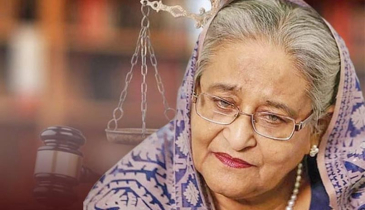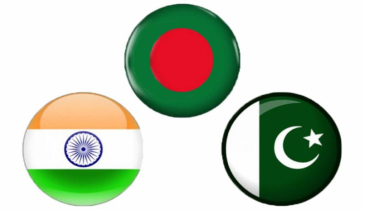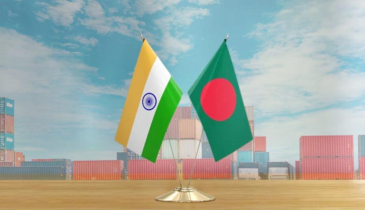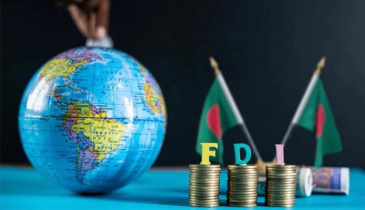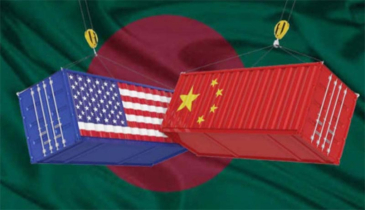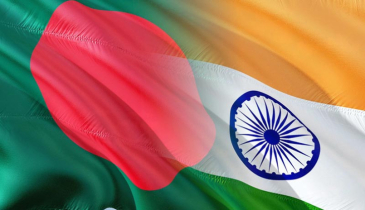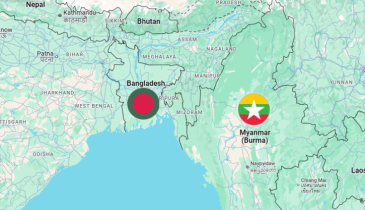MBS's upcoming visit to Dhaka assumes huge significance
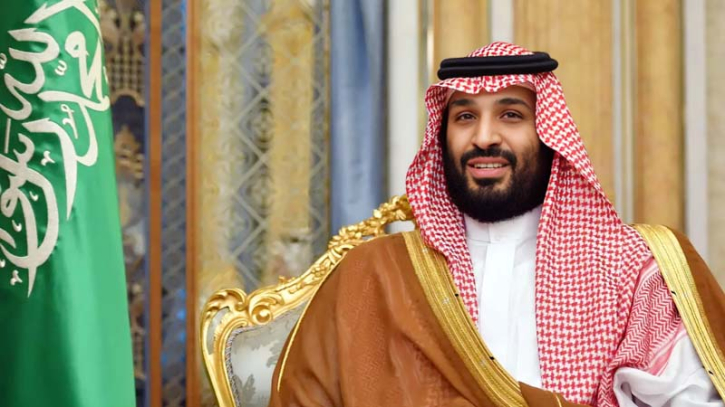
When Riyadh acknowledged Bangladeshas a sovereign state in 1975, the formal relationship between Bangladesh and Saudi Arabia began. These two nations have been friendly and close ever since. Both parties' high-level visits have helped to strengthen their bilateral ties. Saudi Crown Prince Mohammed bin Salman's (MBS) forthcoming historic visit to Bangladesh is expected to have a significant impact on trade, investment, defense, and economic cooperation, as well as the KSA-Bangladesh all-encompassing relationship.
The fact that Saudi Crown Prince Mohammed bin Salman can visit Bangladesh at any moment was reaffirmed by Foreign Affairs Advisor Md. Tauhid Hossain on September 29, the day of the Saudi Embassy in Dhaka's 94th National Day celebration. However, this would be the first crown prince visit to Bangladesh, following Saudi Crown Prince Abdullah bin Abdulaziz's 1985 visit to Dhaka.
Therefore, MBS' visit will be strategically important and opportunistic for both parties because there is much space for strengthening ties between Saudi Arabia and Bangladesh in a number of important sectors including political, economic and defense cooperation, manpower, trade, investment, energy security, regional and global development, education, health, investment issues, environment and climate change, ICT, tourism and the Rohingya crisis funding and resolution. In light of current international relations trends, the visit may present a unique opportunity to evaluate the full spectrum of cooperation between the KSA and Bangladesh, upgrade, improve and chart the course of future bilateral relations, and pave the way for high-level meetings and engagement for additional bilateral ties.
It is strongly hoped that MBS's upcoming visit to Bangladesh would produce positive results that will advance the fraternal ties. With the two countries getting ready to commemorate 50 years of diplomatic relations next year, his crucial and historic visit to Bangladesh would surely strengthen the long-lasting bilateral connection. Agreements and memoranda of understanding are among the bilateral documents that might be inked when the Saudi leader is in the South Asian country. Both sides hope that this would strengthen their countries' bilateral ties even more.
Muslim-majority Bangladesh places a high value on its ties with Saudi Arabia. Additionally, they have similar views and stances on a wide range of regional and international issues, particularly those that directly affect the Muslim world. Dhaka's special foreign relationsare strongly tied to the development of ties with Riyadh for political, religious, and economic reasons. It's also crucial to remember that Bangladesh and Saudi Arabia have similar views on the war between Israel and Gaza. Both desire a rapid end to hostilities and a two-state solution. Nonetheless, the KSA's ongoing support for the Rohingya people has always been appreciated by Bangladesh.The Arabian nation has been crucial in providing much-needed economic assistance, mostly in the form of grants, trade and investment, energy supplies, jobs, and remittances.
Over the years, the Saudi Fund for Development has been instrumental in a number of infrastructural initiatives. They collaborated on several regional and global forums, including the United Nations and the Organization of Islamic Cooperation (OIC), as a result of their shared interests. Given that Bangladesh views Saudi Arabia as a reliable friend, it is imperative to examine what Bangladeshis want to get out of the KSA's MBS visit. Since Saudi Arabia and Bangladesh are mutually dependent, MBS's visit to Bangladesh is intended to improve bilateral ties between the two nations. More exchanges, trade and investment are anticipated to be facilitated by the visit.
Bangladesh views Saudi Arabia as its most reliable friend and ally, same as Saudi views Bangladesh as a significant friendly nation. Over 2.8 million people from Bangladesh migrate, reside and work in Saudi Arabia. They are the biggest Bangladeshi population living abroad and the largest expat group in Saudi Arabia. One of the main drivers of Bangladesh's economy is the enormous remittances that Bangladeshi expats from Saudi Arabia bring home each year.On September 13, 2024, the Bangladesh Embassy in Riyadh launched the e-passport service program for Bangladeshi expats in light of its significance.
Because of their job happiness, prior experience, and semi and low-skilled, inexpensive labor, Bangladeshi workers are preferred by employers above those from other nations. The economy of both nations greatly depends on overseas remittances and inexpensive labor, respectively.
Bangladesh may anticipate and seek excellent support for the improvement of migrants' skills through the introduction of several training programs during the MBS visit. As an illustration of their common social justice ideals, the recent proposal for a Joint Task Force on labor problems shows their shared dedication to defending the rights and welfare of workers.
Saudi businesses can investigate and explore the possibility of investing in a variety of areas, including as the LNG and power sectors, in the 100 Special Economic Zones that Bangladesh has established for foreign investors. To fully tap this potential, Bangladesh seeks Saudi investments in infrastructure, manufacturing, and energy. Saudi officials and businesspeople have previously expressed interest in investing in Bangladesh's electricity, infrastructure, LPG storage terminals, and energy sector.
Saudi investors should look into high-tech parks and economic zones if they have favorable opinions of the investment arrangement. In the fields of technology, renewable energy, and healthcare, collaboration is valued for its ability to foster innovation and competition on both sides. As an illustration of its dedication to enhancing Bangladesh's logistical capabilities, Saudi Arabia invested in the Patenga Container Terminal.
The visit by MBS may show a commitment to strengthening ties, particularly in sectors like infrastructure, industry, logistics, food, and both conventional and renewable energy. Additionally, the visit should be crucial to lowering the barriers to visas for Haj performers, luring more Saudi investors, increasing commerce with Riyadh, and facilitating human resource training and migration.
Important areas of shared interest include Riyadh's investment in Bangladesh's SEZs and Hi-Tech Parks, Bangladesh's readiness to enhance its garments exports to Saudi market, directly supply food grains and agro-products to KSA, improving bilateral trade, and finding a long-term solution to the Rohingya issue. The hydrocarbon and service industries of BD offer KSA enormous investment prospects. Furthermore, investment in Bangladesh would benefit the nation more because income taxes were lowered along with corporate taxes. Bangladesh is benefiting from a demographic dividend, and both nations may take use of this unique chance. Bangladesh is also making progress in the digital sphere, and KSA might make investments in Bangladesh's IT industry.
During a recent meeting with Dr Yunus, the Chief Advisor of the caretake government,Saudi Ambassador to BD Al Duhailan requested the government to lower investment obstacles in Bangladesh and underlined the value of Saudi investors in the country. He believes that Saudi Arabia and Bangladesh are excellent friends. Regarding a wide range of topics, such as investment, human resources, and climate change, Saudi Arabia and Bangladesh have mutual understanding.
Saudi Arabia is viewed as an essential partner to assist Bangladesh in reaching its economic goals as it prepares to exit LDC classification. With the Saudi Fund for Development lending $533.23 million and grant assistance $106.38 million, Saudi Arabia's interest in investing in Bangladesh grew dramatically throughout the years. Saudi Arabia's dedication to advancing Bangladesh's economic growth is demonstrated by this financial support. High-quality investments from Saudi Arabia and other nations are still required, nevertheless, in order to assist Bangladesh in achieving long-term economic growth, job creation, and poverty reduction.
Saudi Arabia is Bangladesh's most important Middle Eastern business partner; in recent years, bilateral trade is predicted to reach $2 billion. The significant increase in the bilateral trade suggests that the Saudi market is becoming more interested in Bangladeshi goods including Bangladesh's quality garment products. With one of the most investor-friendly regulatory frameworks in South Asia, Bangladesh's economy is still growing at one of the quickest rates among emerging nations. -Source: Daily observer
.png)


